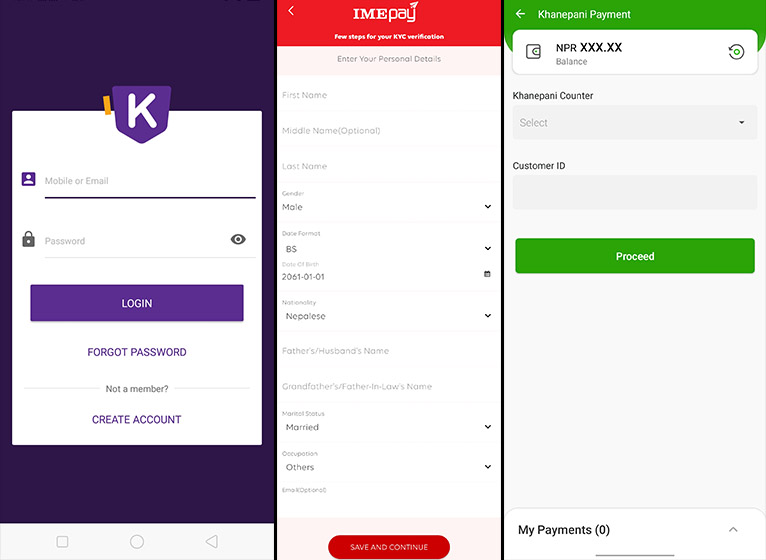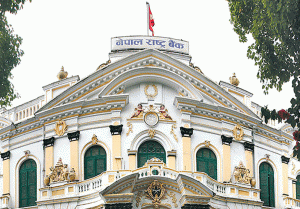At the end of March, Nepal Rastra Bank gave Sajilo Pay Payment Services Pvt Ltd permission to operate as a payment service provider (PSP).
Sajilo Pay started its transaction with a capital of Rs 10 million immediately. With this, the number of companies that have have such permission in Nepal has reached 28.
In just a few days before this, four companies before Sajilo Pay also obtained the same permission from the central bank. It also gave licences to about a dozen other companies in the current fiscal year even while it has been difficult for the previously licenced wallets to do good business.
Most of the e-wallets in Nepal are finding it difficult to survive. E-wallet companies with more customers like eSewa, Khalti and PrabhuPay have also seen a decline in revenues. It has pushed e-wallets to either sell their licences or merge with others to continue their work.
Older better

The coronavirus epidemic has affected everyone’s business. NRB spokesperson Dev Kumar Dhakal says the older ones are doing well while the new companies are also facing challenges.
Nischal Adhikari, the director of the Payment System Department of the NRB, says that the market has been good for those who obtained licences before 2017 only. “It is almost natural for people to open multiple bank accounts,” he says, adding, “But, there is no habit among people to download or maintain more than one wallet. So many have old customers, but the new ones have struggled.”
Kusum Lama, the operator of PrabhuPay, says although it is a good thing that more companies have caused competition, there is a need to merge the wallet services. “They should work on improving their services.”
PrabhuPay is the first company to get a licence and its customer base has been good. Apart from this, wallets like eSewa, IME Pay, and Khalti have a good customer base too. Only the companies that came into operation this current fiscal year have not been able to expand the market.
Promises and pessimism

The Covid-19 pandemic and resultant lockdowns have led many sectors into crisis. Lama says the pandemic, however, has had the opposite effect on the e-wallet business.
“The crisis boosted digital wallet business just like interest in insurance companies increased after the 2015 earthquake,” she says.
The number of wallets was just 14 at the beginning of the current fiscal year. However, as the first three quarters have been over, the number has exactly doubled.
Although the number of wallets has increased by 100 per cent in the first eight months of the current fiscal year, the total number of customers has increased only by 22 per cent, according to the NRB.
The number of wallet users in July 2020 last year was 6 million and 274,129. By mid-February 2021, this number reached 7,667,312.
Hence, it shows that the number of customers has not increased.
Sparrow Pay Pvt Ltd CEO Amit Agrawal says not all licenced companies are active in the market. And many, according to him, are active companies focused on mobile recharge only.
“Getting a licence does not guarantee that the business will be good; it will take time,” says Agarwal.
Are mergers a solution?
Experts say that in a small market like Nepal, having 28 wallet companies is too much. The NRB spokesperson Dhakal also says the offices have realised so and hence they have now closed the application for new licences.
The NRB, however, has not made any plan regarding the merger public. Spokesperson Dhakal says that there is an existing rule that states the licence will be revoked if the criteria are not met. This is why, everyone wants to do good business and they can choose to go for a merger, voluntarily, if necessary, he says.
PrabhuPay operator Lama says it is good that the new companies bring new features and services. But, there is a risk of wasting investment, she says. “The NRB has sought the same security as the bank and has given the licence only to those with a capital of up to Rs one billion. But, it will be difficult for investors and businesses to get the same level of security as from the banks,” says Lama.
She agrees the number of licenced e-wallets operating today is too much now. Of the 30 million Nepalis, only 60 per cent can use an e-wallet, and more than 4 million of the population are abroad, she says. And for these reasons, she thinks it is better to have a merger so that more people can invest in the same company while maintaining the demand.


























